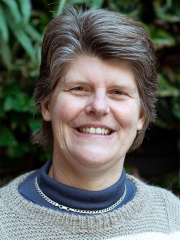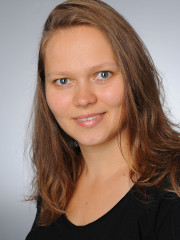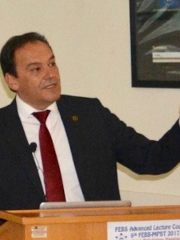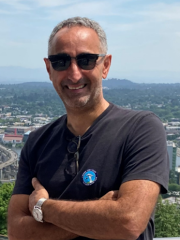
|
|
|
Organizing committee > Scientific Organizing CommitteeJanet Burgess, Netherlands
Janette Burgess is Professor of Extracellular Matrix in Disease Pathogenesis within the Department of Pathology and Medical Biology, Medical Biology section at University Medical Center Groningen, the Netherlands. Janette completed her Bachelor of Science (with honours) at the University of Adelaide Australia in 1991 and her PhD at the University of New South Wales in Hematology in 1998. After a number of competitive fellowship positions in Australia, in 2015 she was awarded a Rosalind Franklin Fellowship to join the University Medical Center Groningen, where she is now a tenured Professor. Janette’s research focusses on the role of the extracellular matrix (ECM) in lung pathology. She is intrigued by the changes in the tissue and airway structures of the lungs that occur during disease development and progression and wants to know if these changes are a cause or a consequence of the pathology. Working with primary human lung cells, human lung tissue samples and patient clinical information, the research seeks to characterize the changes in the ECM that occur during disease in the lungs and to understand the mechanisms that underlie these changes. By novel in vitro cell models, ex vivo human lung tissue models and advanced microscopy imaging techniques she is unraveling the complex nature of the regulation of the ECM and exploring its potential as a future target for therapeutic intervention. This research links basic science to the goals of prevention and treatment of human lung diseases that afflict millions of people worldwide.
Julia Etich, Department of Pediatrics and Adolescent Medicine, UKK, UoC, Cologne, Germany
Julia Etich, born in Kazakhstan, earned her Ph.D. in Biology from the Faculty of Medicine at the University of Cologne, Germany, in 2011. Her doctoral research was centered on characterizing mesenchymal-derived cells that play pivotal roles in tissue development and regeneration. Throughout her postdoctoral studies in Cologne and Frankfurt, Julia made significant contributions to the field of cartilage homeostasis and skeletal diseases and became the mother of three children. Her dedication to her family life harmoniously coexisted with her advancing academic career. Notably, her work shed light on the pathomechanisms underlying rare bone diseases, providing valuable insights into why the assembly and quality of extracellular collagen are profoundly affected in cases of non-classical Osteogenesis imperfecta. Since 2022, Julia is a Principal Investigator in the Research Unit FOR2722, where her research focuses on unraveling the intricate connections between metabolism, extracellular matrix production and remodeling, cartilage-to-bone transformation, and the pathogenesis of mitochondria-related joint diseases (https://for2722.uni-koeln.de/en/). In addition to her research and academic commitments, Julia has been an active participant in various scientific societies. She currently holds the positions of the President of the German Society for Matrix Biology (DGMB) and the Secretary of the International Society for Matrix Biology (ISMB). Her unwavering dedication to these organizations has been instrumental in nurturing collaboration and exchange within the matrix biology community.
Valerio Izzi, Finland
Valerio Izzi is Associate Professor (tenure-track) of bioinformatics and Group Leader at the University of Oulu (Finland). Immunologist by formation, Valerio met the ECM world in 2012 when he moved to Oulu to join the Center of Excellence in cell-extracellular matrix under the mentorship of prof. Taina Pihlajaniemi. Since then, Valerio was fascinated by the systems biology of the matrisome and has contributed numerous analyses and tools bridging big data and matrix research. The core mission of the IzziLab is tool generation to empower the matrix research community with easy-to-use means to access, query and investigate matrisomics data in health and disease, especially in cancer. Valerio is also currently chair of the Finnish Society for Matrix Biology and vice-president of the International Society for Matrix Biology (ISMB).
Nikos Karamanos, University of Patras, Greece
Nikos K. Karamanos is a Professor of Biochemistry in the University of Patras. He is editor, member of the editorial boards/advisory editorial board of several international peer-reviewed journals and president of the Int. Society of Matrix Biology (ISMB), president of the Hellenic Society of Biochemistry and Molecular Biology (HSBMB) and coordinator of the Hellenic Matrix Biology Section of HSBMB. He is the chairman of the FEBS Advanced Lecture Courses in “Matrix Pathobiology, Signaling and Molecular Targets” (2007-2022). Prof. Karamanos is the series editor of the Book series: Biology of Extracellular Matrix, Springer-Nature since 2020. Prof. Karamanos has extensive experience in the fields matrix pathobiology, cell signaling, molecular targeting, pre-clinical evaluation of drugs at cell level and cytotoxicity. More focus is given to proteoglycans, glycosaminoglycans, metalloproteinases and epigenetic regulation, in tissue organization, development and progression of various disorders, such as cancer. The signal transduction pathways (receptors and intracellular mediators) as well as the effects of growth factors and cytokines as regulatory mechanisms in matrix macromolecular expression are also studied. He is guest editor/coordinator in 20 Special/Thematic issues and books/volumes and co-author of >350 original research and review publications in peer-review international journals.
Andrew Pitsillides, Professor of Skeletal Dynamics, Department of Comparative Biomedical Sciences, Royal Veterinary College. London UK.
Andrew Pitsillides is a member of the Skeletal Biology Group and leads the Comparative Physiology and Clinical Sciences Research Programme at the Royal Veterinary College, London. His research studies have explored skeletal mechanobiology across diverse biological settings; from the role of embryo movement in the emergence of skeletal form, to how bones and joints respond to functional/ traumatic load in growth, adulthood and ageing. His group has pioneered innovative non-surgical mouse models for in vivo bone and joint loading. Andrew received a PhD (1988) funded by a Special Wellcome Trust Award at the world-renown Kennedy Institute of Rheumatology. His group’s research: i) characterised type B synovial cells based on their ECM synthesis, ii) discovered nitric oxide as critical in bone mechanoadaptation, with a genetic component linked to growth, iii) revealed joint formation relies on mechano-dependent ERK activation leading to high local production and binding of hyaluronan, iv) showed cartilage trauma susceptibility is not always linked to OA vulnerability and is transcriptionally linked to 'classical' inflammatory pathways. His group now also explores mechanobiology of endochondral interfaces, with a specific focus on identifying key targets for translation. Their work uses spontaneous OA in STR/Ort mice and state-of-the-art imaging of the joint's osteochondral unit. Andrew Pitsillides is Fellow of The Royal Society of Biology (FRSB), Anatomical Society (FAS) and Higher Education Authority (FHEA), Board Member of the Bloomsbury Centre for Skeletal Research and was recently honoured to receive the Fell-Muir Award from the British Society for Matrix Biology which he is now very proud to serve as its Chair. |






